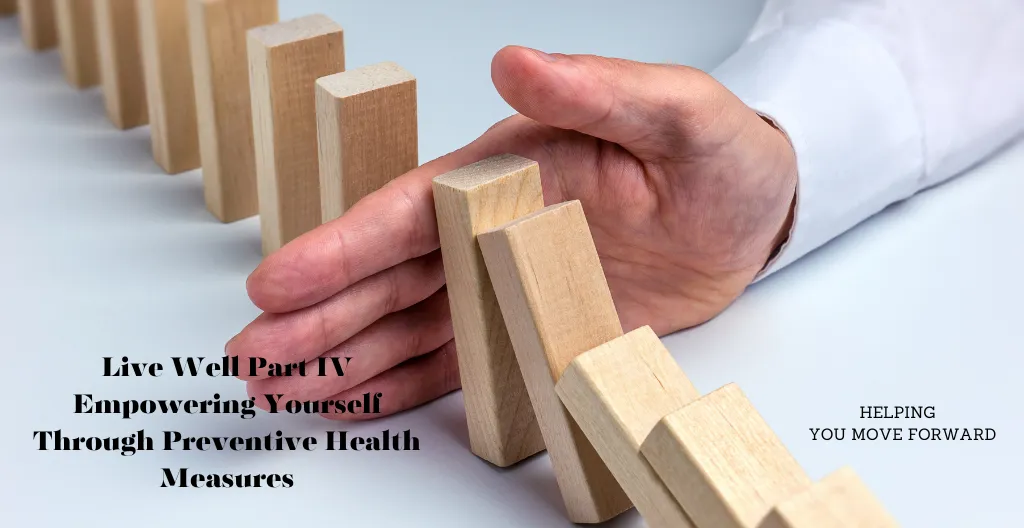My father died from cancer. He ignored the warning signs and refused to see a doctor until he could no longer ignore his abdominal pain and blood in his stool. Once he finally sought medical care, he was diagnosed with stage 4 colon cancer.
He entered his chemotherapy treatments with high hopes. When chemotherapy didn’t work, he sought radiation. The radiation made him extremely ill; he lost his drive to do anything but sit in his rocking chair, lacked focus, could not think nor be present with those around him.
In spite of the treatment, the cancer metastasized to his spine and the pain was excruciating. He chose to end the radiation and spend his remaining time doing the things he loved: gardening, smiling, laughing, and spending time with the family.
My dads’ pain and suffering were immense. At 69 years old, death was eminent from cancer, not old age like he always talked about.
As a health and wellness advocate, I ask, although death is natural and to be expected, “Could my father have lived longer and with a quality of life?”
I truly believe in my heart of hearts the answer is a resounding yes!
My sister was only 53 when she died from lung cancer that metastasized to her brain. I asked the same question. “Could she have lived longer and with a quality of life?” I also believe the answer is yes.
If you and I were having tea together at our favorite out of the way specialty tea shop and I told you that my dad and sister could have lived longer, possibly avoided cancer, you probably would be telling me I was crazy. I would argue that I am not. Illness, including cancer, can be prevented.
This is quite a bold statement and I know I am putting myself out on a limb. According to the Mayo clinic, only about 10-15 percent of colon cancer is genetic and lung cancer is 80 percent associated with smoking.
The next logical question is “How?” How could they avoid cancer?
Primary prevention is intervention before signs and symptoms of poor health occur. This can include stress reduction, the use of sunscreen, eliminating processed foods, eating a diet rich in healthy fats, protein and fruits and vegetables, and removing substances (alcohol, tobacco, drugs,) that are known to cause disease or damage to body or mind. Establish encouraging relationships and keep a positive outlook. Reduce stress, exercise and engage with your higher power. My higher power is God.
Secondary prevention is having screenings to identify disease in the earliest stages before symptoms occur and are more difficult to treat. Screenings and tests are intended to detect diseases.
Pay attention to family history. As mentioned earlier, cancer has a lower percentage of genetics however lifestyle choices, habits do not fall far from the tree. You are your mother’s child. You will be likely to carry on many of the same lifestyle choices which can result in the same outcomes.
Get regular screenings for:
Heart disease
Blood pressure
Cancer – colon, breast, skin, gum, etc.
Hearing
Vision
Cholesterol
Bone density
Alzheimer’s
Arthritis
Mental health
Obesity
Depression
Stress
Remember to include your mental health in screenings. Your doctor should be approaching your health in a whole-body, holistic method which includes screening questions about your mental health.
Both my dad and sister experienced stressful life events prior to their cancer diagnoses. Stress has a horribly powerful impact on your body and its ability to fight diseases. I believe that their stress reduced their immune systems so far that the cancer casing free radicals were able to multiply leaving their bodies defenseless to the mutated cells.
I am a firm believer in alternative medicine, a holistic approach to health. If you are not getting the answers you want from your medical doctor, consider meeting with a doctor of osteopathy of functional doctor. I regularly meet with my chiropractor who address skeletal alignment, my immune system and mental health.
Seek a doctor that associates with your beliefs and values.
- Tertiary Prevention purpose is to soften the impact of an ongoing illness or injury that is chronic or long-term. This is done by helping people manage the continuing, often complicated health problems in order to improve their quality of life. This is often completed by teaching coping mechanisms, using rehabilitation techniques, and offering support.
- cardiac or stroke rehabilitation programs, chronic disease management programs (e.g. for diabetes, arthritis, depression, etc.)
- support groups that allow members to share strategies for living well
- vocational rehabilitation programs to retrain workers for new jobs when they have recovered as much as possible.
- Primary Prevention: Intervening before health effects occur, through measures such as vaccinations, altering risky behaviors (poor eating habits, tobacco use), and banning substances known to be associated with a disease or health condition.
- Secondary Prevention: Screening to identify diseases in the earliest stages before the onset of symptoms.
- Tertiary Prevention: Managing disease post diagnosis to slow or stop disease progression.
- Screenings and Tests: Preventive health includes screenings and tests to detect conditions early. For adults, common screenings involve checking for chronic diseases like heart disease, diabetes, and cancer. These tests help catch problems before they become more serious.
- Immunizations: Preventive care also includes vaccinations (shots) to prevent serious illnesses. Staying up-to-date with immunizations is crucial for overall health and disease prevention.
- Family Health History: Knowing your family health history is essential. It provides insights into genetic predispositions and shared risk factors. If certain diseases run in your family, you may need specific preventive measures.
- Regular Checkups: Regular medical and dental checkups are part of preventive care. These visits focus on screenings, services, and education. Dental cleanings, counseling, and informed health decisions are also addressed during checkups.
- Cost Coverage: Most health insurance plans cover the full cost of preventive health services, including screenings and vaccinations, with no co-payments.
He also discovered an irregular thyroid which delayed cancer treatment for 3 months.
I am grateful that I did something we talked about for years. We read Catcher and the Rye together in his final week while he laid in bed doped up with morphine. Actually, I read it to him rather than us doing it together and have an interactive dialogue between us. However, even in his diffused and limited mental state, I know he heard every word.




